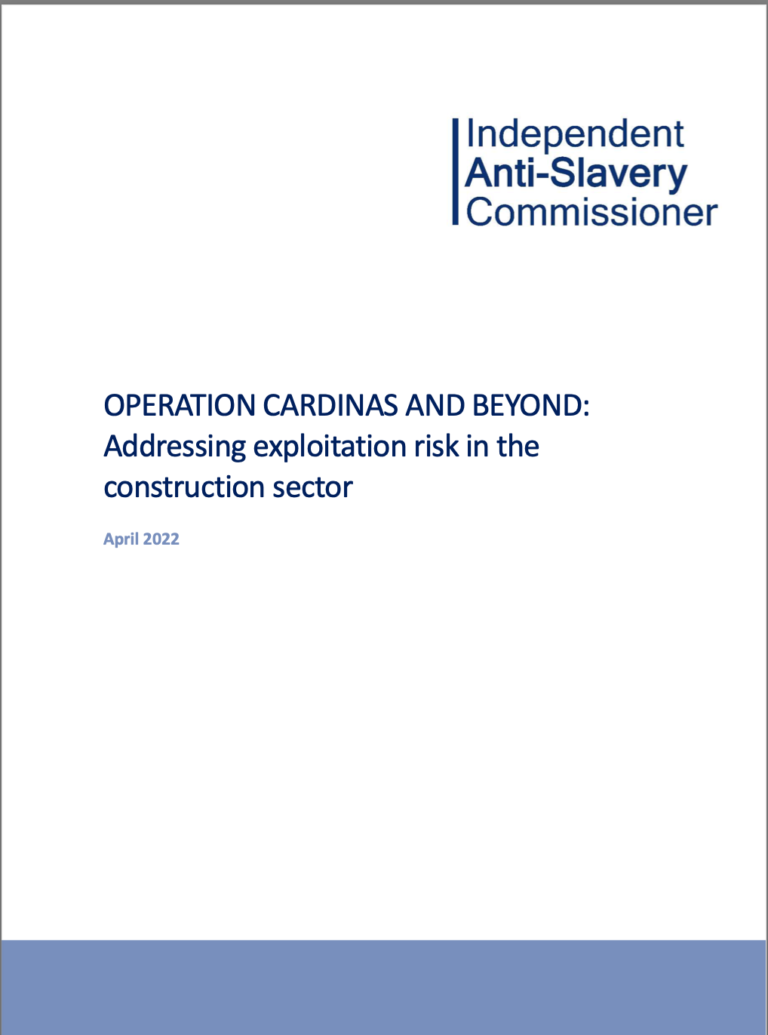The purpose of this report is to learn lessons from a major modern slavery case in construction; review the factors that lead to the exploitative environments in the sector; explore the most effective ways that businesses can safeguard workers.
Operation Cardinas is one of the UK’s largest modern slavery investigations. It involved a criminal group operating undisturbed for a number of years across London and the southeast. During this time, the group managed to place victims of forced labour into a number of major construction sites and infiltrated at least 33 businesses. Cardinas illustrates the material and reputational risks that labour exploitation poses to construction, as well as its negative impact on security, health and safety and, potentially, the quality of the build.
Modern slavery tends to be perpetrated by organised criminals and is the most extreme form of exploitation. However, common commercial practices can create vulnerabilities in the workforce, enabling conditions in which both cynical opportunism and outright criminality can thrive. This report highlights best practice that is evolving to address the sector’s complex labour risks.

